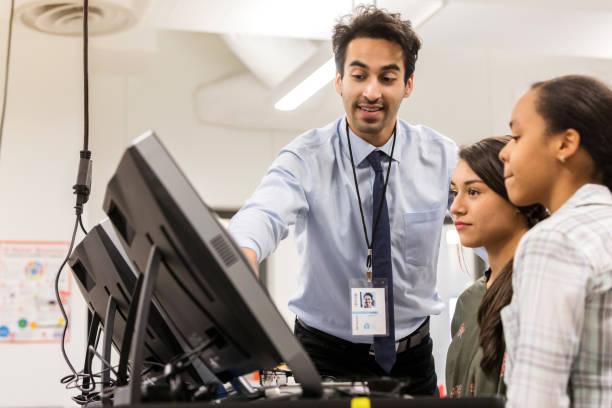(ThyBlackMan.com) Education is evolving. It’s no longer focused only on memorizing facts or scoring high on tests. Today’s schools are paying closer attention to how students think, communicate, and interact with others. These abilities, often called soft skills, play a major role in helping students succeed both inside and outside the classroom.
Soft skills include communication, teamwork, emotional awareness, time management, adaptability, and problem-solving. While these aren’t graded like math or science, they show up every day in how students manage assignments, work in groups, and handle pressure. More importantly, they continue to matter long after graduation.
Schools, colleges, and employers all recognize that students need more than strong academics to do well in the real world. As demands shift in the job market and in society, soft skills are becoming just as critical as academic skills. That’s why conversations around education are now including these personal and interpersonal abilities as key parts of learning.

Soft Skills Help Prepare Students for Real Life
Academic knowledge helps students pass tests and write papers, but soft skills help them deal with the real world. Whether it’s managing time during a busy week, leading a class project, or learning how to give and receive feedback, these skills shape how students handle everyday situations.
In school, students already face challenges that push them to develop soft skills. Group assignments require collaboration and patience. Class discussions teach listening and respectful disagreement. Tight deadlines improve time management. When these skills are encouraged early, students grow more confident and capable in new environments.
Whether students are entering the workforce or going to college, soft skills help them adjust, communicate, and build relationships in new settings. These abilities often make the difference between just showing up and truly succeeding. A student who can speak clearly, ask for help, or work with a team has a real advantage over someone who relies only on technical skills.
These skills also give students better control of their own learning. A student who knows how to stay organized and reflect on mistakes will handle challenges with more maturity. This builds resilience and independence, which are two things every young adult needs as they move forward.
Teachers and counselors often say that the students who thrive are the ones who adapt, listen well, and show effort—not just the ones with the highest test scores. This shift in thinking is why many educators are finding new ways to highlight and support soft skills in school.
Students don’t need to master everything all at once. The key is helping them recognize the value of soft skills and giving them space to practice those habits in their daily routines. That way, by the time they graduate, they’re ready for whatever comes next.
Employers Value Skills Beyond the Resume
Grades and degrees still matter, but employers now place just as much weight on how someone behaves at work. Soft skills are often the deciding factor when hiring managers compare two people with similar qualifications. They want employees who can solve problems, work well in teams, and handle feedback with maturity.
In fast-paced environments, being able to communicate clearly and adapt quickly is more important than ever. Jobs today often involve cross-functional teams, remote communication, and shifting priorities. People who stay calm under pressure and think on their feet stand out in these situations.
Companies are also placing value on emotional intelligence. That includes being able to read social cues, manage emotions, and respond thoughtfully to others. These skills help reduce conflict and build stronger workplace relationships.
Internships, part-time jobs, and volunteer work give students real chances to develop soft skills before they enter the job market. These experiences teach time management, accountability, and professional communication—traits that help new hires succeed from the start.
Employers want people who contribute to the culture as much as the workflow. When students bring soft skills into interviews or early job roles, they’re seen as future leaders, not just recent graduates.
Why Schools Should Prioritize Soft Skills in the Classroom
Schools don’t need to launch new programs to start building soft skills. Many of the tools are already there. Group projects, presentations, peer reviews, and leadership roles in clubs all give students space to develop these habits. What matters is that teachers recognize and support these efforts as part of student growth.
For example, when a teacher praises a student for helping others, thinking creatively, or staying focused, it signals that those traits matter. Over time, this shapes how students define success.
Teachers can also include moments for self-reflection. After a group project, asking students what worked, what didn’t, and how they could improve helps build awareness. These moments don’t take much time but have lasting value.
Soft skill development works best when it’s part of everyday learning. That means talking about listening, effort, and flexibility, not just test scores or grades. When schools focus only on results, students might miss out on the traits that make long-term success possible.
Giving students room to lead or solve real problems also helps. When students organize events, run classroom tasks, or mentor younger peers, they build leadership, time management, and decision-making skills without even realizing it.
How Parents and Communities Can Support These Skills
Soft skills aren’t just taught in classrooms, they grow through everyday life. Parents, mentors, and community members play a big role in helping young people build habits that stick.
At home, small things like following a routine, sharing responsibilities, or resolving conflicts without yelling build valuable skills. Parents can also encourage kids to speak up, make decisions, and reflect on their actions. These habits matter just as much as grades.
Community involvement also helps. Local clubs, sports teams, or youth programs give students a chance to practice communication, teamwork, and leadership. These experiences build confidence and give students new ways to grow outside of school.
Mentorship makes a difference too. When students have trusted adults who listen and give advice, they learn how to manage stress and make better choices. A strong support system teaches students how to connect with others and manage life’s challenges with confidence.
Academic skills help students pass tests. Soft skills help them handle life. As the world changes, education must focus on both. Students who can think clearly, communicate well, and adapt to new situations are better prepared for anything ahead. Teaching soft skills doesn’t require special tools—it just takes attention, practice, and the belief that these abilities matter just as much as anything taught in a textbook.
Staff Writer; Larry Parker
















Leave a Reply